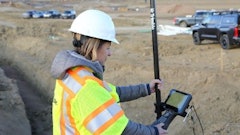
One of the most frustrating parts of running a business is the never-ending battle with employees. Some never seem to do what you need them to do. They are either working slow, working on the wrong things, or doing things the wrong way.
Since you can't grow a business without employees, you have three choices in the matter:
- Work yourself to death by micromanaging.
- Put up with the poor performance and subject yourself to the associated financial risk.
- Hold everyone accountable.
Being held accountable is something few people welcome. That's a shame.
Accountability is a good thing. It is something we need. We need to be accountable to ourselves. How else are we going to be healthy and happy? We need to be accountable to our family and friends. They make life special. We need to be accountable to our co-workers. Our financial security depends on it.
Accountability separates the men from the boys.
Great businesses are built on it. When a business fails, someone or several ones, failed to hold themselves accountable to the rest of their team's well being. It's that simple.
Make accountability a way of life in your business. Today's article is devoted to contractors who struggle with accountability - with getting people to do what they MUST do day in and day out, week in and week out, year in and year out.
Accountability can be painful to those administering it. Deep down inside of us is the desire to be liked. Accountability rams head first into that innate desire.
If your need to be your employees' friend is strong, the road ahead will be bumpy.
You can't make an omelet without breaking a few eggs. You can't hold people accountable without inflicting pain - on your employee and yourself.
At some point in time, you'll to have to let an employee go. That inflicts pain on that person and his or her family. NOT jettisoning the poorly performing person inflicts pain on your employees, their families, and you.
You can't stop the pain. All you can do is transfer it.
Many times, you'll have to deliver direct, uncomfortable feedback. There is no other way when people aren't holding themselves accountable to the big picture.
Accountability processes are neither complex nor time consuming. They don't take super human effort. What they require is a commitment to running things the right way - a commitment to teamwork, success, winning.
If you allow children to do whatever they want, they will do a lot of things that are unhealthy and unsafe. Without being allowed to suffer from their self-induced mistakes, to learn the benefits of making wise choices, they are unlikely to transition easily into adulthood. A few will, but most will not.
Same with employees. If you let them go about their jobs as they see fit, some will excel, most will muddle along, and a few will disrupt everyone else. The vast majority will make decisions about their use of time and your money that run counter to your business goals. They need to be kept on track.
Your Responsibility As Owner / Manager
Call it being the boss, leading, tough-love, evil, whatever.
Holding people accountable for poor performance is your responsibility. Accountability starts at the top. It is your job to position your business for success and to position each of your employees for success.
Don't try to do it alone. Accountability should roll downhill from you through your management team.
You must hold your operations and sales managers accountable. Your operations manager must hold your project managers and estimators accountable. Your project managers must hold your superintendents and foremen accountable. Your superintendents and foremen must hold your field workers accountable.
Accountable For What?
- For being on the job.
- For being productive.
- For working safely.
- For building things properly.
- For being team-oriented.
- FOR DOING THEIR JOBS RIGHT.
You Must Hold People Accountable
- Nobody hires perfectly. You will bring in a bad apple now and then.
- One bad apple poisons the bunch if you don't toss it out quickly.
- Employees' interests and yours are often in conflict.
- Most employees don't know what's best for them (for example, in hindsight our best school teachers are often the ones we hated the most.)
- Employees suffer from the entropy effect: all things fall apart if left to themselves.
- If YOU don't hold people accountable, nobody else will either.
- Create a success oriented culture.
- Make sure your employee knows his (her) job duties.
- Make sure your employee knows his (her) role in the big picture.
- Make sure your employee has everything needed to succeed.
- Make sure your employee understands the intrinsic and extrinsic rewards for doing his (her) job right.
- Keep the feedback flowing - either through data or personal communication.
Let's Talk About Feedback
There's a term that applies here. The term is SHAPING. Managers need to use SHAPING to align employee effort to that required and needed.
Shaping means encouraging and complimenting desired behavior and discouraging and correcting undesired behavior. Pay attention to their decision making, their productivity, and their adherence to procedures and policies.
Focus your discussion on what you think you saw or heard. Question the observable behavior, not the person. Avoid personal attacks.
Use this approach when letting someone go. Explain that what you witnessed does not meet your business' needs. You are rejecting their fit to your business. You are not rejecting them as a person.
BE PROFESSIONAL.
Create a Culture of Mutual Accountability
Once you create a culture of accountability from the top down, you'll start to see your "A" players step up and hold everyone else accountable. You will create a culture where people confront under-performing peers quickly and aggressively.
That is mutual accountability. That is the mark of a great business!
Additional Resources that Build on the Topics of this Article
Holding people accountable
Delivering feedback
Employee decision making
Employee productivity
"A" players




















